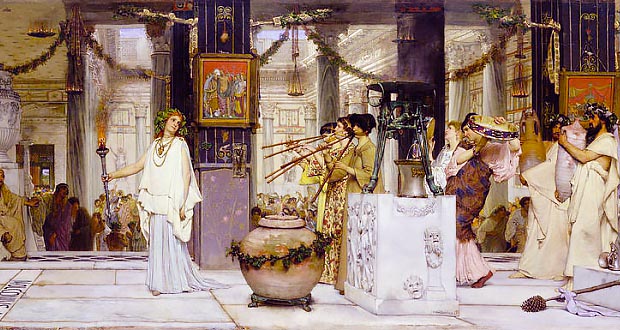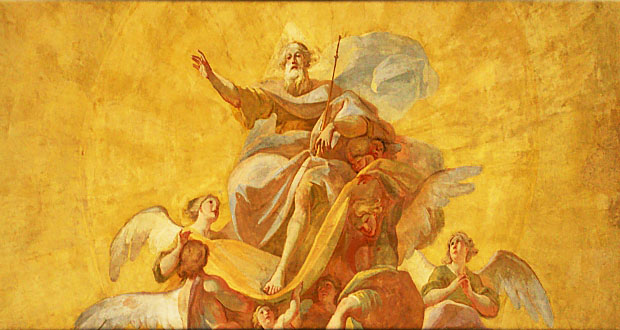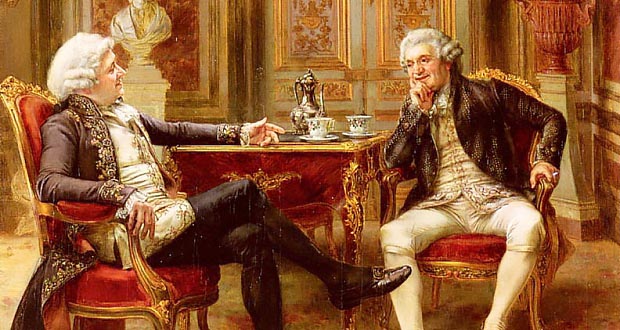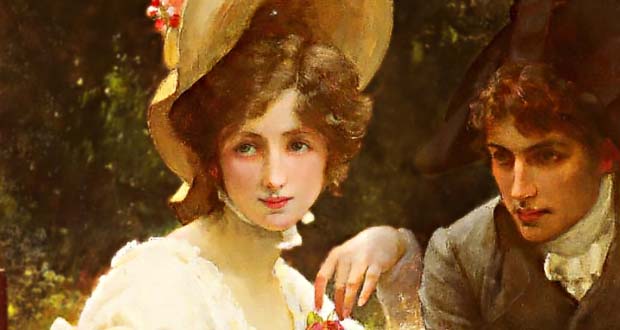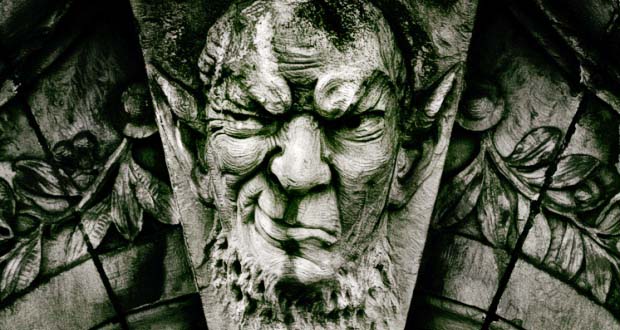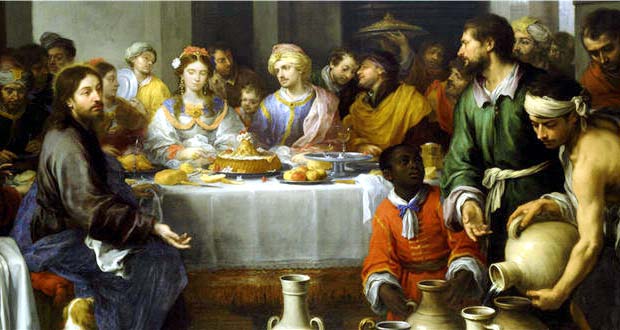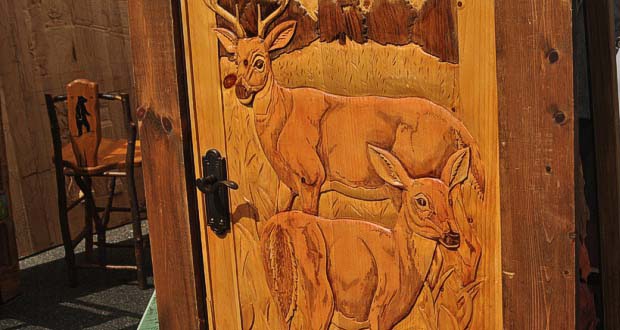Dr. Mitchell Kalpakgian
September 26, 2013
7,070 Views
To be human is to be born with desires, to have wishes, and to experience longings. But not all wishes have the same quality, nature, or origin. Some wishes assume the shape of daydreams or fantasies as utopian visions enter the mind and people imagine impossibilities.
Read More »
Dr. Mitchell Kalpakgian
September 19, 2013
6,705 Views
Man by nature is idealistic, seeks excellence, and hopes for perfection, but he is bound by the weakness of human nature and the limits of the human condition. There is no such being as a faultless painter or a sinless human being. In the sport of baseball every player aspires to get a hit every time and bat 1.000, but even the best of batters only have an average of .300.
Read More »
Dr. Mitchell Kalpakgian
September 12, 2013
7,556 Views
According to proverbial wisdom, “When you do succeed, the chances are that you were not trying too hard in the first place.” This observation appears to contradict the idea of ...
Read More »
Dr. Mitchell Kalpakgian
September 5, 2013
9,267 Views
In Anne Morrow Lindbergh’s classic Gift from the Sea the author, using the leisure and recollection of a summer vacation at the ocean, reflects on the art of living a ...
Read More »
Dr. Mitchell Kalpakgian
August 30, 2013
8,457 Views
The ancient Greeks identified the sign of fruitfulness as proof of the art of living well, as the true mark of civilization. On the shield of Achilles in the Iliad ...
Read More »
Dr. Mitchell Kalpakgian
August 22, 2013
8,937 Views
To be human is to think of the future, to imagine the unknown, and to fear the unpredictable. So many things are not in the control of human beings who ...
Read More »
Dr. Mitchell Kalpakgian
August 15, 2013
6,870 Views
In O. Henry’s short story “The Social Triangle,” Ikey Snigglefritz, a simple tailor’s apprentice, receives his week’s wages and on his way home enters the Café Maginnis. There he accidentally ...
Read More »
Dr. Mitchell Kalpakgian
August 8, 2013
8,290 Views
In his fairy tale “The Goblin at the Provision Dealer’s” or in some editions entitled “The Pixy at the Grocer’s,” Hans Andersen depicts the life of a goblin who enjoys ...
Read More »
Dr. Mitchell Kalpakgian
August 1, 2013
9,407 Views
A critic of Jane Austen’s novels facetiously coined this phrase to illustrate one of the virtues of civility. Characters with the most refined and elegant manners exemplify this virtue that ...
Read More »
Dr. Mitchell Kalpakgian
July 25, 2013
7,895 Views
What is Nature without the pied beauty of the four seasons? What is a home without paint, pictures, flowers, and interior decoration? What are human beings without tasteful, dignified clothing? ...
Read More »
Dr. Mitchell Kalpakgian
July 18, 2013
7,654 Views
“Set a watch, Lord, beside my mouth and a door about my lips.” Psalm 38:1 The art of living is the knowledge of knowing when to speak and when to ...
Read More »
Dr. Mitchell Kalpakgian
July 11, 2013
7,364 Views
The art of living demands that persons be willing to commit themselves, to have convictions, and to act even though one does not have perfect knowledge or clear foresight. Aristotle ...
Read More »
Dr. Mitchell Kalpakgian
July 3, 2013
12,670 Views
The Devil thrives on conflict and dissension. Division or “legion” is his name. Whether it is wars between nations, heresy or schism in the Church, or divorce in families, the ...
Read More »
Dr. Mitchell Kalpakgian
June 20, 2013
8,178 Views
In the Odyssey, Homer’s epic about the family as the center of civilization portrays two ways of life—the civilized and the barbaric. The civilized dwell in homes, the barbaric in ...
Read More »
Dr. Mitchell Kalpakgian
June 13, 2013
7,240 Views
In Robert Frost’s “After Apple-Picking” the narrator spends an entire day from morning till evening picking all the apples before the first frost of the season. He has spent the ...
Read More »
Dr. Mitchell Kalpakgian
June 7, 2013
7,980 Views
A person can live in a narrow world or a wider universe. He can live in a state of stagnation with no goals or ambitions, or keep his life in ...
Read More »
Dr. Mitchell Kalpakgian
May 23, 2013
7,336 Views
In The Way of a Storyteller Ruth Sawyer tells an anecdote about a gifted furniture maker renowned for his craftsmanship whose work was in great demand by the prominent and ...
Read More »
Dr. Mitchell Kalpakgian
January 3, 2013
7,018 Views
This piece is transcribed from a commencement speech delivered by the author. In Lucretius’s famous words, “Nothing can come from nothing.” A hundred or a thousand or a million times ...
Read More »
Dr. Mitchell Kalpakgian
December 3, 2012
11,427 Views
This 100th anniversary edition of Chesterton’s poetic version of King Alfred’s heroic defense of Christian England from the pagan Danes is an exquisite publication.It embellishes the famous narrative and provides ...
Read More »
Dr. Mitchell Kalpakgian
November 3, 2011
7,481 Views
Simone Weil, a noted Jewish philosopher, remarked, “Imaginary evil is romantic and varied; real evil is gloomy, monotonous, barren, boring. Imaginary good is boring; real good is always new, marvelous, ...
Read More »
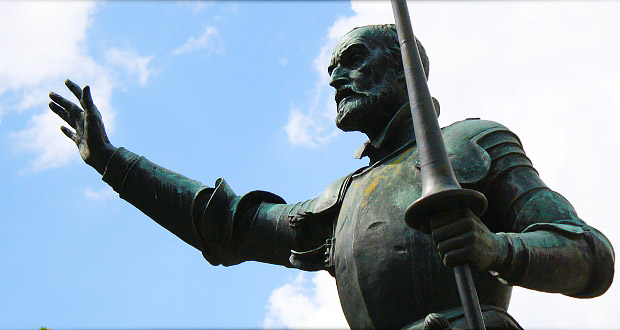

 Seton Magazine Catholic Homeschool Articles, Advice & Resources
Seton Magazine Catholic Homeschool Articles, Advice & Resources



